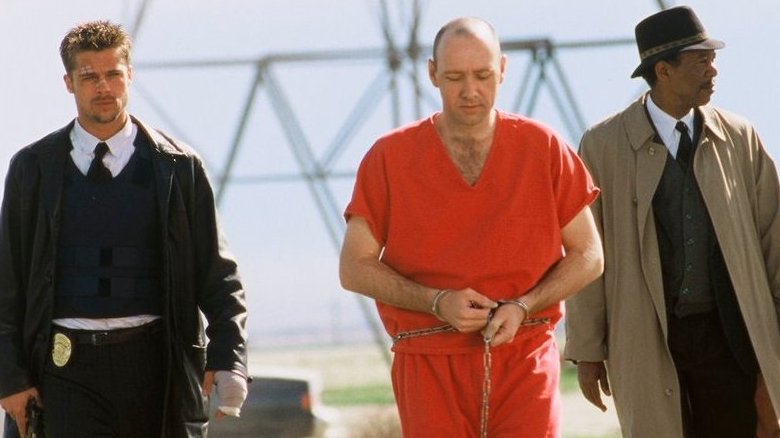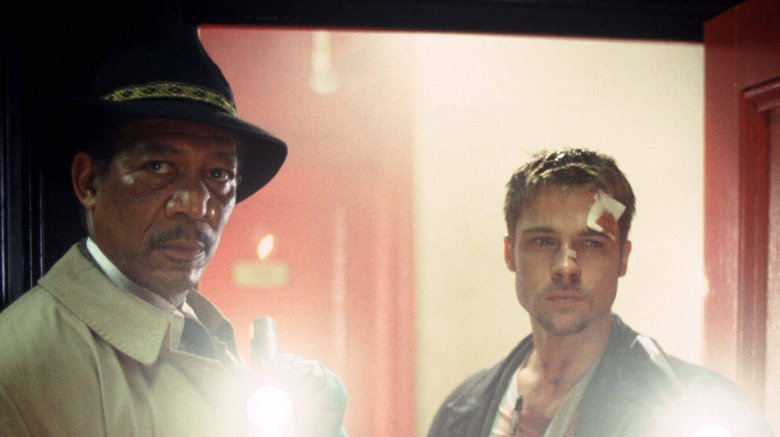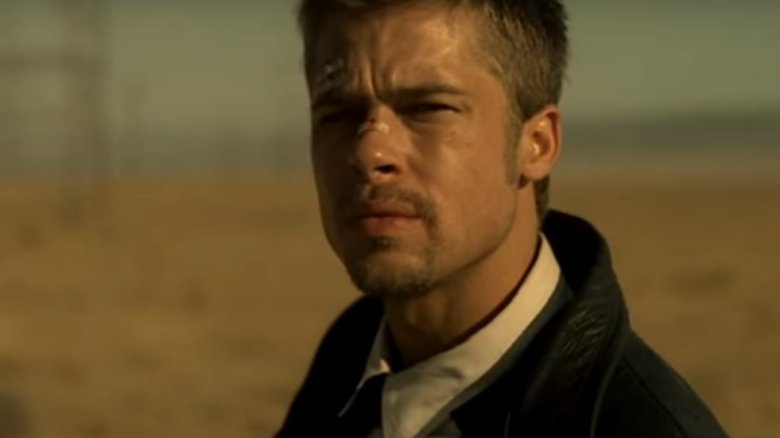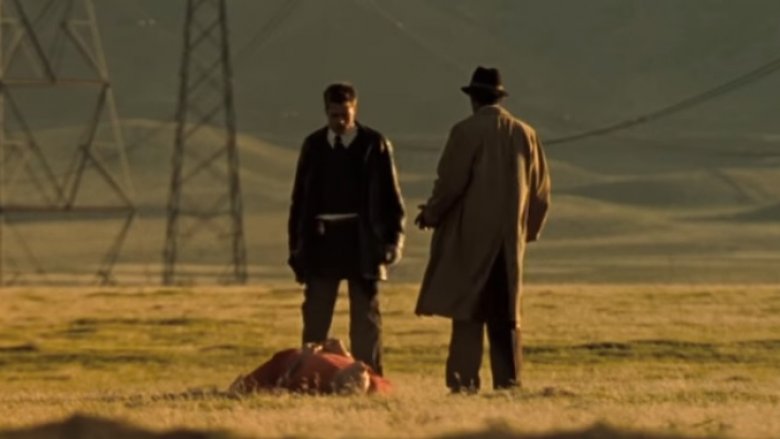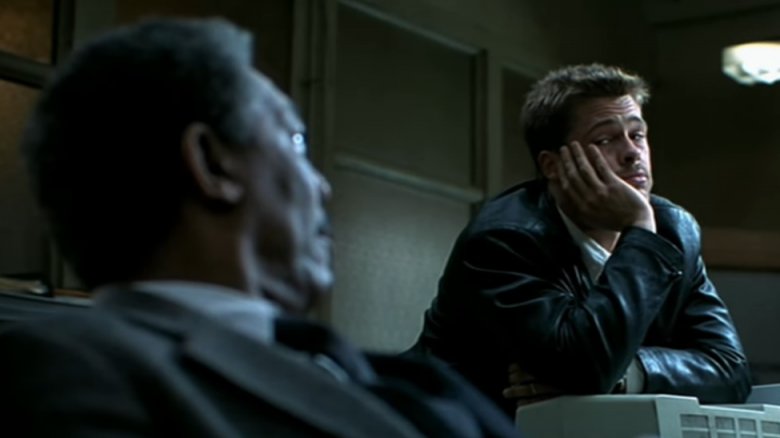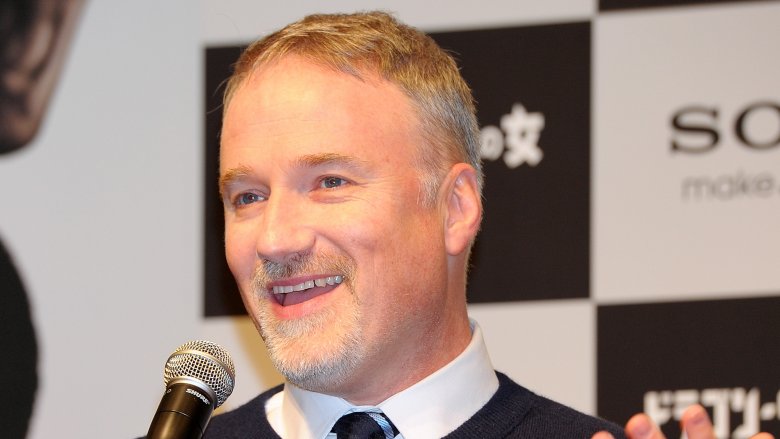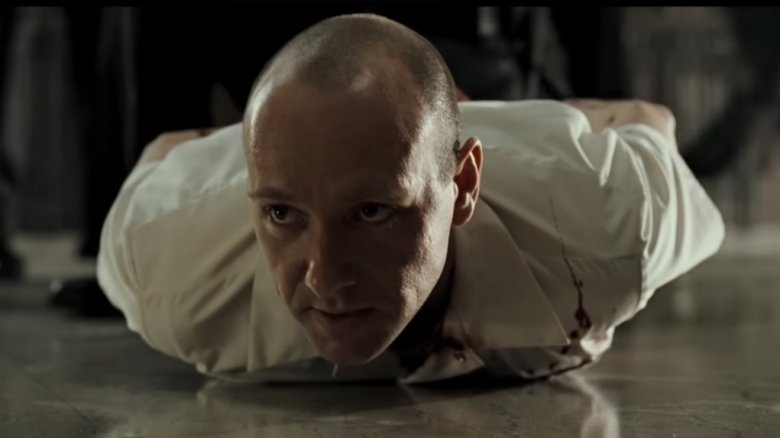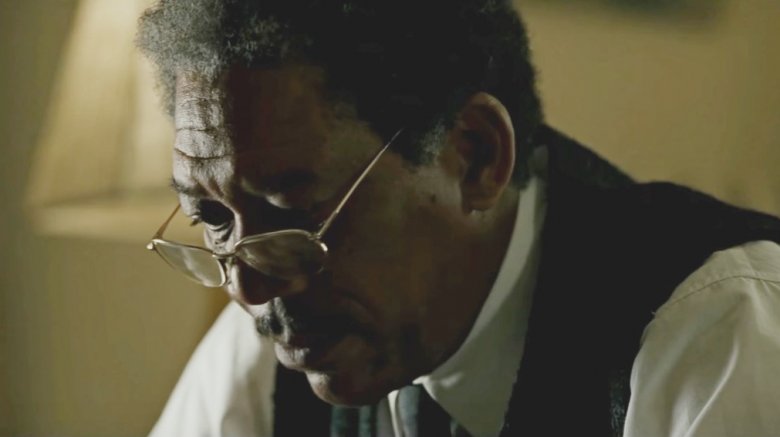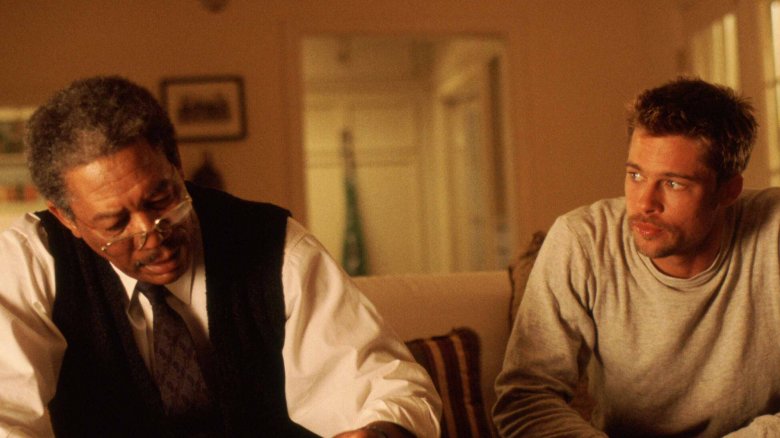Why Se7en Never Got A Sequel
Held up against pretty much any metric Hollywood executives care about, Seven was a very successful film. Critics thought fondly of the David Fincher-directed serial killer thriller, and it brought in plenty of money during its run at the box office, signifying both its artistic and financial merits—two studio check marks that usually result in a sequel being greenlighted. And yet, even with its sizable profit and uncontested entertainment value, Seven never got an official follow-up. Were there plans for one? Briefly, yes, but it obviously never materialized. This begs the question: why? Every movie studio loves a franchise, and even hit movies that seem to offer little to no narrative possibility for a follow-up often end up getting a sequel. How did Seven end up being a one-and-done exception to the rule? We've done some digging into the history of what went down behind the scenes, and the answers might surprise you.
The movie was a one-trick pony
As great of a movie as Seven was, the title alone alludes to its biggest monetary pitfall: there was never any room for a sequel. Seven follows two detectives hunting down a psychopath, one whose heinous crimes are themed around the seven deadly sins. By the end of the movie, the criminal is dead and one of the detectives is mentally broken due to the grisly murder of his wife. How might a studio expand on that to justify a sequel? Should they simply call it Eight, inventing a new sin and a forced plot to go with it? Or have it revolve around a different set of seven items? Either way, it's already sounding a bit hokey, if not blatantly lazy.
Of course, there's always the alternative path of continuing the dreary stories of detectives David Mills and William Somerset. However, that's a sequel route posing so many of its own challenges that we'll analyze this option individually further down. In short, it would've been an uphill battle.
The only way to do a satisfying follow-up to a movie like Seven would be to make it as unrelated to the original as possible, which would paradoxically defeat the whole point of it being a sequel. This no-win scenario starts to paint a picture that explains why the seven deadly sins never fostered anything beyond one great standalone David Fincher thriller.
There wasn't a lot of demand for a sequel
Maybe there's a (very) silent majority out there who are still pining for a follow-up to Seven, but the fact of the matter is that the vocal movie-going populace have never expressed a ravenous desire to see a sequel. While the original movie got great reviews and made respectable bank (enough that suits toyed with the idea of a sequel), there were never legions of Fincher fans lining up outside of New Line Cinema's offices demanding more Seven films. It was a niche movie that served its purpose at the time it came out and, as most good one-shot flicks do, quietly faded into cinema history with a good legacy in its wake. It didn't break any financial records or spur a rabid cult following, it simply entertained people enough for it to be a successful one-and-done property.
The main cast was super busy after 1995
Not one of the three leads of Seven experienced a dull year following the film's 1995 release. Brad Pitt, Morgan Freeman, and Kevin Spacey all went on to their next projects, and each had at least one new movie in 1996, with that number doubling across the board the following year.
The pace didn't let up from there—each of the A-list actors kept busy with multiple new projects almost every year since '95, which diminished chances of a proper sequel greatly. Producing a sequel while the fire's hot, i.e., within a few short years of the original film's release, is always a strategy studios aim for. Unfortunately for the suits interested in a Seven follow-up, there was no chance of reassembling the magnificent trio of talent in time to pull off an expedient second act. Even if one was to write off Kevin Spacey's character given his death in the original film (excluding all attempts at resurrecting him or penning a prequel sequel), that still meant coordinating schedules between the ever-busy Pitt and Freeman. In short, scheduling alone was reason enough for a sequel not to happen.
Spin-offs would've been a tough sell
If New Line Cinema was to tackle a direct sequel that continued on with the stories of Seven's lead detectives, it would've been a tough sell—not only to the prospective audience, but to whichever writer was tasked with penning the follow-up. After all, both lead characters concluded very fulfilling arcs by the end of the first film. Continuing their stories past such a natural stopping point would seem like more of an excuse for a sequel, not a reason. What might those potential excuses have been, you wonder? Well, there's a few angles that could've been taken.
A solo spin-off with Pitt's character might've worked, following detective Mills' recovery after the events of Seven. However, a story like this would draw comparisons to the plenty of other films, of various genres, following a cop recovering from a trauma of his/her past. As such, any flaws would receive extra scrutiny. That's a bad handicap to have right out of the gate, especially after the heat of the very original, widely praised Fincher film.
Alternatively, if the sequel chose to follow Somerset, the writers would be saddled with the unenviable task of explaining the character's return from retirement. When Somerset remained poised to throw in the towel, even after the haunting finale of Seven, it looked like nothing could convince him otherwise. Therefore, it would take something unimaginably absurd to pull Somerset back into the game. That necessary absurdity is what could just as easily break a new plot as well as make it, meaning a continuation of Somerset's story would've been one extraordinarily risky proposition.
David Fincher himself didn't want it to happen
Nothing puts the nails in the coffin of a hypothetical sequel quite like the first movie's own director saying he'd never want to do a follow-up. When answering a question regarding whether he'd consider directing another Seven film, David Fincher responded: "I would have less interest in that than I would in having cigarettes put out in my eyes," a quote that leaves absolutely nothing up to interpretation. We're never getting a part-two courtesy of Fincher, guys.
Here's what happened when they tried to make a sequel
It seems New Line Cinema was wise to never release an official Seven sequel, and, when we eventually did get something resembling one, it wasn't what anyone had expected—or wanted.
The film in question: Solace. While not a direct sequel, it was originally meant to be one and to this day remains a spiritual successor to the original.
Solace was a spec script that was retooled to fit within the Seven mythos. Right off the bat, that meant it wasn't constructed from the ground up to be a worthy successor—it was an original movie jammed into sequel clothing. And we do mean jammed; even the studio execs eventually realized it wasn't going to fit properly.
The plot of Solace focused on a psychic detective hunting an equally psychic criminal. While the original plan was to slide Freeman's Somerset into the role of the aforementioned detective, the strange supernatural slant ended up removing Solace so far from Seven that all involved parties agreed it best to keep the two properties separate. Hence, Solace went back to being its own film, one that eventually released to poor reviews and a bad time at the box office. Two more reasons to be thankful it didn't end up being an official sequel, we suppose.
A sequel could've hurt the brand name
Speaking of bad movies, think of what a bad sequel could do to Seven's impeccable reputation. If there was a Seven 2, and it turned out to be bad, then people would have to specify which of the Seven movies they liked by referring to it as "the good one," cheapening the series as a whole. This is a sad phenomenon that can be evidenced with the Alien franchise.
Heck, even if it didn't end up being a bad sequel, it could still undo a lot of the beautiful mystery that made the original so special. Remember how the city had no name in the first film? Any further exploration of the setting, explicit or otherwise, might ruin its mystique. On a similar note, if the hypothetical sequel's story ended up being a prequel, it could retroactively damage the first film by telling stories that diminished the characters' motivations for being where they are at the start of Seven. Again, think back to the Alien series. If not for Alien: Covenant, the xenomorph would still be a scary enemy. Now we—the few and the proud(ish) who dared to see it—know that the deadliest creature in the universe is just a grouchy android's pet science experiment, which completely drains the fear and power once held by the creatures in Alien and Aliens. That's a prime example of what could happen if a Seven prequel or sequel were to inappropriately expand on the original.
It would've been a case of diminishing returns
This brings us to one of the biggest reasons why Seven didn't see a sequel. David Fincher is a master of his craft and never dips into sequel territory. Meaning New Line Cinema would've had to find an equally gifted director for part two. Similarly, the original film's cast was all booked up following 1995, so the studio would've needed to talent hunt for a new set of capable stars. And, on top of that, the substantial challenge of developing a sequel-worthy script would've presented itself at some point as well. Couple those items with the fact that the original, while doing quite well, didn't exactly break records at the box office and one can only guess what the studio would've been trying to achieve with a follow-up flick. Therein lies the corporate argument for not moving forward with a sequel: the effort invested would've outweighed whatever gains the studio might've projected.
It didn't need one
At the end of the day, there are plenty of reasons why Seven never got a sequel. It was a needlessly risky business prospect, the original's own director didn't want it, there wasn't fan demand for it—perfectly valid explanations in their own right. But there's a final reason we haven't mentioned yet, one that really sums up why this memorable thriller never went on to spawn anything more: because it didn't need to.
Seven was a fantastic movie by itself. It was built from the ground up for thriller fans and delivered in spades. It pleased critics and casual moviegoers alike, further solidifying David Fincher's reputation as a noteworthy filmmaker. In short, it was a small, tactical affair that knew exactly what it needed to be and hit every note perfectly. By achieving the status of one-hit wonder, the film had nothing left to give—something destiny made sure of no matter how hard the execs at New Line tried to cobble together a sequel.
Seven told a complete, fulfilling narrative that afforded each of its characters a meaningful beginning and end.
